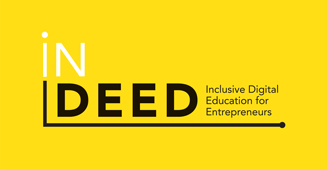- Echoes of Disquiet: Shifting currents in UK news reveal a nation grappling with economic headwinds and evolving social priorities.
- Economic Headwinds and Their Impact
- Shifting Social Priorities
- The Rise of Environmental Consciousness
- The Changing Media Landscape
- Political Polarization and Its Impact on Reporting
Echoes of Disquiet: Shifting currents in UK news reveal a nation grappling with economic headwinds and evolving social priorities.
The current landscape of news uk is marked by a complex interplay of economic anxieties and shifting societal values. Recent reports indicate a growing concern amongst citizens regarding the rising cost of living, coupled with a reevaluation of traditional institutions and priorities. This period of flux is reflected in the media consumption habits of the nation, as well as the narratives dominating public discourse.
Understanding these trends is crucial for interpreting the present and anticipating future developments. The media plays a pivotal role in shaping perceptions and influencing public opinion, making it essential to analyze how changes are being framed and disseminated. This examination will delve into key areas, providing a comprehensive overview of the challenges and opportunities facing the United Kingdom.
Economic Headwinds and Their Impact
The United Kingdom’s economy has experienced considerable turbulence in recent times, significantly impacting various sectors and affecting the financial stability of households across the nation. Inflation remains a persistent problem, eroding purchasing power and creating uncertainty for businesses. Supply chain disruptions, exacerbated by global events, have further contributed to price increases and shortages. This economic pressure is reflected in the concerns voiced by citizens and reported across the media landscape.
| Inflation Rate | 4.6% | 4.7% |
| Unemployment Rate | 4.2% | 4.1% |
| GDP Growth | 0.2% | 0.1% |
Shifting Social Priorities
Alongside economic concerns, there’s a noticeable shift in societal priorities within the UK. Issues related to social justice, environmental sustainability, and healthcare are gaining prominence in public discourse. Younger generations, in particular, are demonstrably more engaged with these themes, driving demand for greater corporate social responsibility and government action. This shift is influencing the topics covered by the news media and the types of stories that resonate with the public.
The Rise of Environmental Consciousness
Increasing awareness of climate change and environmental degradation has led to a surge in activism and demand for sustainable practices. Public opinion polls consistently show strong support for policies aimed at reducing carbon emissions and protecting natural resources. This heightened consciousness is prompting businesses to adopt more environmentally friendly practices and consumers to make more sustainable purchasing decisions. The media actively covers these developments, highlighting both the challenges and the opportunities associated with a transition to a greener economy. This is profoundly impacting several sectors, from energy and transport to agriculture and manufacturing. Invested parties are all weighing in on the national strategy with ambitious goals.
The growing emphasis on environmental issues is also driving political debate, with different parties proposing various approaches to addressing climate change. The coverage of environmental concerns is no longer confined to specialist publications, but has become a mainstream topic of discussion across all media platforms. The pressure for demonstrable progress is only increasing, leading to calls for greater accountability and transparency from both government and industry. However, achieving consensus on the best course of action is proving to be a complex and contentious process.
Furthermore, this shift in priorities is shaping consumer behavior, with a growing number of individuals choosing to support businesses that align with their values. This trend towards conscious consumption is forcing companies to rethink their supply chains and production processes, as well as their marketing strategies. The long-term implications of this shift are significant, potentially creating a more sustainable and equitable economic model.
The Changing Media Landscape
The way people consume information is undergoing a rapid transformation, with traditional media outlets facing increasing competition from digital platforms. The rise of social media has democratized information dissemination but also presents challenges related to misinformation and echo chambers. The public increasingly relies on online sources for their news, but concerns about the quality and veracity of this information are growing.
- Increased reliance on social media for news consumption
- Decline in readership of traditional print media
- Proliferation of online misinformation and ‘fake news’
- Growing demand for independent and fact-checked journalism
Political Polarization and Its Impact on Reporting
The UK political landscape has become increasingly polarized in recent years, with a widening gap between opposing viewpoints. This polarization is reflected in the media coverage of political events, leading to accusations of bias and selective reporting. The rise of partisan media outlets has contributed to the fragmentation of the information ecosystem, making it more difficult for citizens to access objective and balanced information. This presents a challenge not only to journalistic integrity, but also to the functioning of a healthy democracy.
- Increased partisan framing of political issues
- Erosion of trust in traditional media institutions
- Difficulty in fostering constructive dialogue across ideological divides
- Growth of echo chambers and filter bubbles
| The Guardian | Left-leaning | 6.5 million |
| The Times | Centre-right | 3.2 million |
| The Sun | Right-leaning | 5.8 million |
Navigating this complex environment requires a critical and discerning approach to information consumption. Citizens must be equipped with the skills to evaluate sources, identify bias, and distinguish between facts and opinions. Addressing the challenges posed by political polarization and misinformation is essential for safeguarding the health and resilience of the UK’s democratic institutions. Increased media literacy is paramount.
Understanding the interwoven pressures of economic hardship, evolving societal values, and a constantly morphing media landscape is vital for comprehending the present state of affairs within the United Kingdom. The challenges are significant, but also present opportunities for innovation, adaptation, and a renewed commitment to building a more just and sustainable future.
